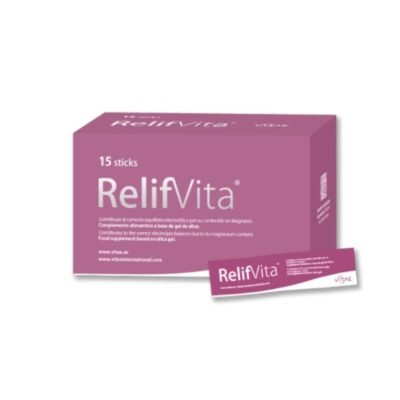Having good intestinal health is essential for our general well-being, both physical and mental, as it is linked to different organs in the body, such as the heart, skin and brain. There is different scientific research that says that it is crucial to have good intestinal health, since 70% of immune cells are found in the digestive tract. And intestinal health has become of great general interest; in fact, sales of probiotics have increased. The specialist in gastroenterology and nutrition, belonging to the Institute of Nutrition and Food Technology (INTA), Sylvia Cruchet , comments that “if the gastrointestinal system is not in balance, it can have a negative effect on our general health and immune system. ”
In Spain, several studies show that there is a variable incidence of inflammatory bowel disease of about 8-16 cases per 100,000 inhabitants/year. For some people it will be a mild disease, although there will be other cases in which the quality of life of those who suffer from it will trigger complications in common life situations.
What is intestinal inflammation and possible causes
Intestinal inflammation results in inflammation of the tissues of the digestive tract. When this inflammation is prolonged over time, it becomes chronic and there are two types: ulcerative colitis and Crohn’s disease.
The exact cause of intestinal inflammation is unknown, although it is most likely a combination of genetic, immune, and environmental factors. Diet and stress can worsen symptoms.
Inappropriate trigger foods
There are some foods that should be avoided when suffering from intestinal inflammation, as they are irritating: coffee, soft drinks, legumes, raw vegetables, spicy foods or spices, sour foods such as citrus fruits, alcohol. In addition, there are foods that in the long term can promote irritation in the digestive tract, such as saturated fats or sugar, therefore, it will be better to consume them in moderation.
Lack of hydration
There may be dehydration due to everything that would be lost through the feces we pass, therefore, it will be ideal to drink enough fluid to be able to recover everything lost.
Stress
Stress is a discomfort that can slow down digestion, that is, it influences digestive health. It can cause a series of problems in our health, such as changes in digestive secretions, loss of the regenerative capacity of the gastrointestinal mucosa, decreased blood flow in the mucosa, imbalance of the intestinal flora, which will therefore cause lead to poor absorption of nutrients, allergies, intolerances, etc.
Main symptoms
- Abdominal pain
- Swelling
- Gases
- Diarrhea or constipation
- Nausea or vomiting
- Weightloss
- General discomfort
Other symptoms may also appear such as rectal bleeding, urgency to defecate and a feeling of incomplete evacuation. They are a type of symptoms that can affect the quality of life, causing constant discomfort and limiting day-to-day activities.
Healthy Lifestyle: Keys to Preventing Intestinal Inflammation
Various research has linked the risk of intestinal inflammation to various lifestyle factors, although it is not entirely certain that adopting and maintaining a healthy lifestyle could reduce the risk of developing this disease.
The researchers calculated the proportion of preventable cases if a healthy lifestyle was adopted and maintained, which would be as follows:
- No Smoking
- Regular physical exercise
- Eat fruit and vegetables (8 servings daily)
- Reduce red meat consumption
- Consume fiber (25g/day)
- Eat fish (2 servings weekly)
- Half daily serving of nuts/seeds
Addressing Intestinal Inflammation: Treatments and Remedies
Pharmacological
At all times, you should go to a professional so that they can give you the best possible diagnosis and then treat you according to what they have ordered. The medications that can be used in this situation will be anti-inflammatories, since they will reduce inflammation of the digestive tract. Although it may help, there are many side effects. Also immunosuppressive (or immunomodulatory ) medications that prevent the immune system from attacking the intestines and causing inflammation. Other drug options would be antibiotics and antidiarrheals, the former would kill bacteria that can activate or aggravate symptoms and the latter could be used to treat symptoms of intestinal inflammation.
Natural food supplements: Beneficial Food Supplements
OlioVita Gastro is a food supplement based on sea buckthorn oil and beta-glucans that contributes to the maintenance of the digestive mucous membranes and the immune system. Both ingredients have good synergy since beta-glucans contribute to the proper functioning of the gastrointestinal tract, stimulating the activity of the microbiota and modulating the immune system against pathogens. And sea buckthorn oil confers moisturizing and nourishing properties to recover the intestinal mucosa in case of physiological alterations that cause inflammation and damage to the mucosa and epithelial cells (type of cells that cover the inside and outside of the body’s surfaces, found in the skin, blood vessels and organs, including the urinary tract). This natural formula contains ingredients with immunomodulatory , repairing and protective functions. In summary:
- Moisturizes, nourishes and repairs the gastrointestinal mucosa
- Helps combat intestinal inflammation in chronic situations, due to its antioxidant properties
- Contributes to improving intestinal permeability
Vitadigest Enzymes is a food supplement based on three bacterial strains present in the human intestine ( Lactobacillus gasseri , Bifidobacterium bifidum and Bifidobacterium longum ) and digestive enzymes (protease, lactase, amylase and lipase) that help promote digestion and regenerate beneficial intestinal flora.
Enzymes help us digest food and absorb nutrients. And probiotics will help us restore the intestinal flora, stabilize the beneficial microbiota , reduce gastrointestinal symptoms related to stress, shorten and reduce the severity of acute diarrhea, etc. In conclusion, both ingredients will allow us to enjoy good digestive health.






